New and Recent Books
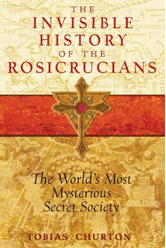

Churton, Tobias, The Invisible History of the Rosicrucians: The World's Most Mysterious Secret Society (Inner Traditions, 2009)
ISBN-13: 978-1594772559
The first complete historical and philosophical investigation into the “invisible fraternity” of the Rosicrucians. Contains the latest research on the origins of the Rosicrucian movement. Presents the ties between Rosicrucianism, Freemasonry, and the Templars.
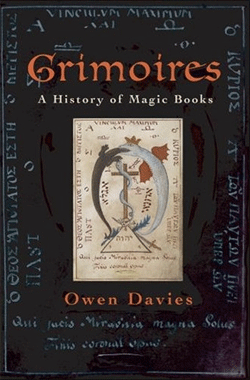
Davies, Owen, Grimoires: A History of Magic Books (Oxford University Press, 2009)
ISBN-13: 978-0199204519
Grimoires shows the influence magic and magical writing has had on the cultures of the world, richly demonstrating the role they have played in the spread of Christianity, the growth of literacy, and the influence of western traditions from colonial times to the present. Through his enlightening and extraordinary account, we see how these secret books link Chicago to ancient Egypt, Germany to Jamaica, and Norway to Bolivia, and grasp how the beliefs of Alpine farmers became part of the Rastafarian movement, how a Swede became the most powerful wizard in early America, and how a poor laborer from Ohio became a notorious villain in his own country and a mythical spirit in the Caribbean.
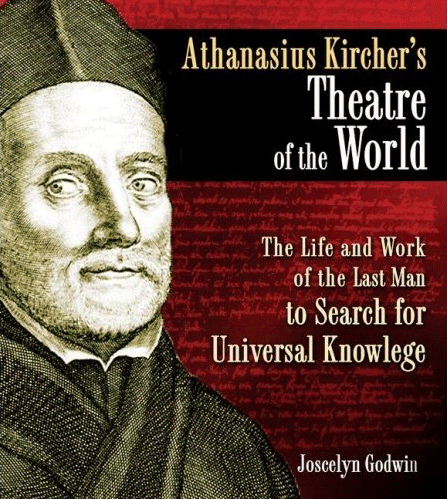
Godwin, Joscelyn, Athanasius Kirchers Theatre of the World: The Life and Work of the Last Man to Search for Universal Knowledge (Inner Traditions, 2009)
ISBN-13: 978-1594773297
A major study of both the written and pictorial work of a neglected genius whose breadth of interest made him the last Renaissance man. Fully examines every area of Kircher’s wide field of study and accomplishment. Magnificently illustrated with the stunning engravings from Kircher’s work
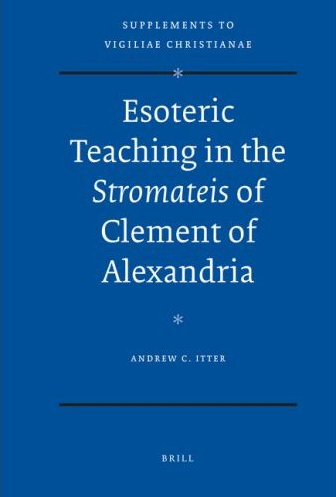
Itter, Andrew, Esoteric Teaching in the Stromateis of Clement of Alexandria (Supplements to Vigiliae Christianae) (Brill, 2009)
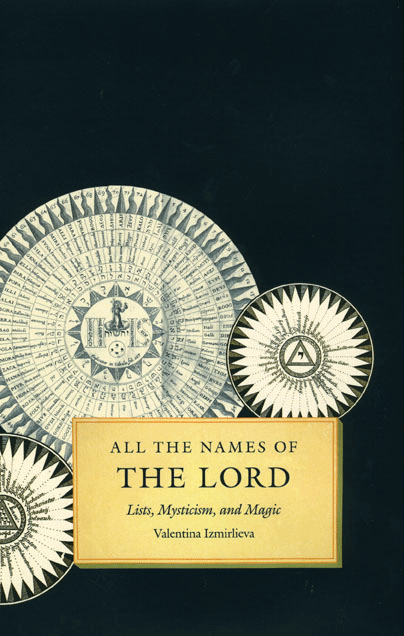
Izmirlieva, Valentina, All the Names of the Lord: Lists, Mysticism, and Magic (University of Chicago Press, 2008)
ISBN-13: 978-0226388700
Christians face a conundrum when it comes to naming God, for if God is unnamable, as theologians maintain, he can also be called by every name. His proper name is thus an open-ended, all-encompassing list, a mystery the Church embraces in its rhetoric, but which many Christians have found difficult to accept. To explore this conflict, Valentina Izmirlieva examines two lists of God’s names: one from The Divine Names, the classic treatise by Pseudo-Dionysius, and the other from The 72 Names of the Lord, an amulet whose history binds together Kabbalah and Christianity, Jews and Slavs, Palestine, Provence, and the Balkans.
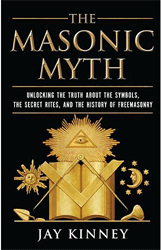
Kinney, Jay, The Masonic Myth: Unlocking the Truth About the Symbols, the Secret Rites, and the History of Freemasonry (HarperCollins Publisher, 2009)
ISBN-13: 978-0060822569
Freemasons have been connected to the all-seeing eye on the dollar bill, the French Revolution, the Knights Templar, and the pyramids of Egypt. They have been rumored to be everything from a cabal of elite power brokers ruling the world to a covert network of occultists and pagans intent on creating a new world order, to a millennia-old brotherhood perpetuating ancient wisdom through esoteric teachings. Their secret symbols, rituals, and organization have remained shrouded for centuries and spawned theory after theory. The Masonic Myth sets the record straight about the Freemasons and reveals a truth that is far more compelling than the myths.
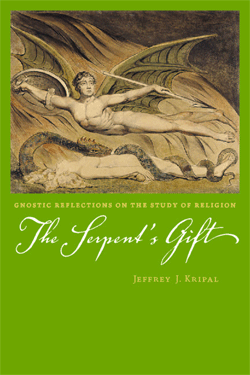
Kripal, Jeff, The Serpent's Gift: Gnostic Reflections on the Study of Religion (Chicago, University of Chicago Press, 2006)
ISBN 9780226453811
Inspired by the early Gnostics who took that startling view, Jeffrey J. Kripal uses the serpent as a starting point for a groundbreaking reconsideration of religious studies and its methods. In a series of related essays, he moves beyond both rational and faith-based approaches to religion, exploring the erotics of the gospels and the sexualities of Jesus, John, and Mary Magdalene. He considers Feuerbach’s Gnosticism, the untapped mystical potential of comparative religion, and even the modern mythology of the X-Men.
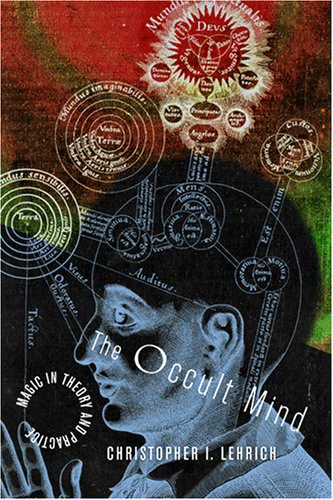
Lehrich, Christopher, The Occult Mind: Magic In Theory And Practice (Cornell University Press, 2009)
ISBN-13: 978-0801475351
Divination, like many critical modes, involves reading signs, and magic, more generally, can be seen as a kind of criticism that takes the universe--seen and unseen, known and unknowable--as its text. In The Occult Mind, Christopher I. Lehrich explores the history of magic in Western thought, suggesting a bold new understanding of the claims made about the power of various belief systems. In closely interlinked essays on such disparate topics as ley lines, the Tarot, the Corpus Hermeticum, writing and ritual in magical practice, and early attempts to decipher Egyptian hieroglyphics, Lehrich treats magic and its parts as an intellectual object that requires interpretive zeal on the part of readers/observers. Drawing illuminating parallels between the practice of magic and more recent interpretive systems--structuralism, deconstruction, semiotics--Lehrich deftly suggests that the specter of magic haunts all such attempts to grasp the character of knowledge.
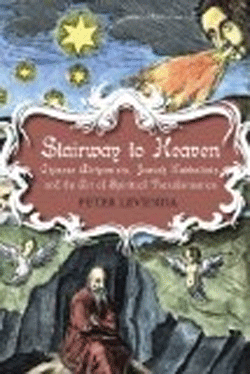
Levenda, Peter ,Stairway to Heaven: Chinese Alchemists, Jewish Kabbalists, and the Art of Spiritual Transformation (Continuum International Publishing, 2008)
ISBN-13: 978-0826428509
Stairway to Heaven is an incredibly broad ranging new study that stretches from ancient Egypt and Babylon to Jewish and Christian Kabbalists, Chinese Daoists, Hindu Tantra and Haitian Vodun and finally to 19th and 20th century European occult societies, uncovering a hitherto unrecognized common myth that has been employed the world over in roughly the same form since the earliest recorded texts. Beginning with the oldest form of Jewish mysticism and extending this search through the dead sea scrolls, Levenda reveals a consistent emphasis on the number seven and its association with heavenly themes, including those of a chariot, a Throne, a Temple and a divine Being. The author then examines the myths and rituals of egypt, sumer and Babylon to locate the origin of this myth and comes up with some surprising results in the ascent rituals of the middle east. Shifting to the far east, Levenda demonstrates how the mystical practices of China and India display important similarities to these rituals, most notably in the practices of the Chinese alchemists who used a map of seven stars as their ladder to heaven.
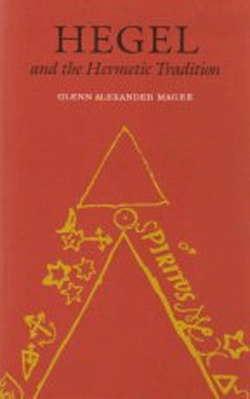
Magee, Glenn Alexander, Hegel and the Hermetic Tradition (Cornell University Press, 2008)
ISBN-13: 978-0801474507
Glenn Alexander Magee's pathbreaking book argues that Hegel was decisively influenced by the Hermetic tradition, a body of thought with roots in Greco-Roman Egypt. Magee traces the influence on Hegel of such Hermetic thinkers as Baader, Böhme, Bruno, and Paracelsus, and fascination with occult and paranormal phenomena. Hegel and the Hermetic Tradition covers Hegel's philosophical corpus and shows that his engagement with Hermeticism lasted throughout his career and intensified during his final years in Berlin. Viewing Hegel as a Hermetic thinker has implications for a more complete understanding of the modern philosophical tradition, and German idealism in particular.
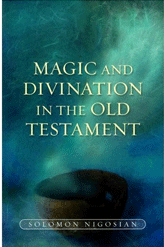
Nigosian, Solomon, Magic and Divination in the Old Testament (Sussex Academic Press, 2008)
ISBN-13: 978-1845192969
Humans, since time immemorial, have tried to discover and influence the will of spirits and deities that they believed to be in charge of their lives. As a result, all cultures have produced certain special individuals thought to be closely in touch with the powers of the supernatural world. Was this true of ancient Israel? If so, who were the occult experts and what techniques were used by them? This study explores the many practices and rituals associated with magic and divination among the ancient Israelites as documented in the Old Testament. Seeking omens and consulting seers and diviners were widely practiced, though in the biblical text such activities are roundly condemned. Solomon Nigosian's scholarly work is written in language that makes it absorbing reading for both the biblical scholar and the layperson.
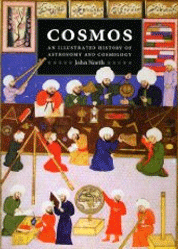
North, John, Cosmos: An Illustrated History of Astronomy and Cosmology (University of Chicago Press, 2008)
ISBN-13: 978-0226594415
For millennia humans have studied the skies to help them grow crops, navigate the seas, and earn favor from their gods. We still look to the stars today for answers to fundamental questions: How did the universe begin? Will it end, and if so, how? What is our place within it? John North has been examining such questions for decades. In Cosmos, he offers a sweeping historical survey of the two sciences that help define our place in the universe: astronomy and cosmology.
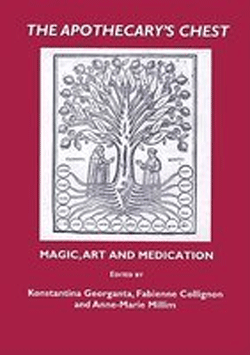
Millim, Anne-Marie and Georganta, Konstantina and Collignon, Fabienne The Apothecary's Chest: Magic, Art and Medication (Cambridge Scholar Publishing, 2009)
ISBN-13: 978-1443804943
'The Apothecary's Chest: Magic, Art and Medication' was a one-day symposium held at the University of Glasgow on November 24, 2007. The symposium called for a discussion on the evolution of the notions of mysticism, knowledge and superstition in the way they are intertwined in both science and the literary imagination in the figure of healers such as the apothecary, the alchemist, the shaman. There were three main areas of interest. The first involved traditional perceptions of physicians, who combined knowledge and superstition and thus bordered, in their practices, on the sphere of the occult. The second theme, evolving from the first, proposed an inquiry of the overlapping interests and processes of science, magic and prophesy, as well as of the implications and consequences of a privileged access to medical knowledge, while the third subject of discussion concentrated on the development of the symbolism of the healer in literature, history, philosophy of science, anthropology, theology, film and art. The twelve papers included in this volume, papers presented by doctoral candidates and young scholars from across a range of geographical regions and disciplines, result in a collection of approaches to an investigative field with topics ranging from mystical traits of mundane materials to the origins of the occult and gender struggles. The thirteenth and final essay included in the volume, Professor Bill Herbert's "From Mere Bellies to the Bad Shaman", is an exploration of the modern role of the contemporary poet in the form of an extended conversation initiated at the closing of the conference, when Professor Herbert was asked to combine a poetry reading with a few observations on the relationship between the poet and the shaman.
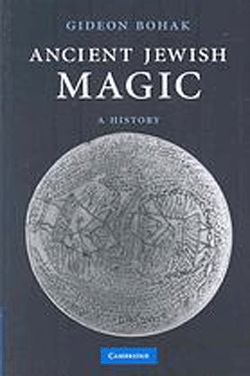
Bohak, Gideon, Ancient Jewish Magic: A History (Cambridge University Press, 2008)
ISBN-13: 978-0521874571
This is a pioneering history of ancient Jewish magic, from the Second Temple to the rabbinic period. It is based both on the ancient magicians' own compositions (and products) in Aramaic, Hebrew, and Greek, and on the descriptions and prescriptions of non-magicians, in an effort to reconstruct a historical picture that is as balanced and nuanced as possible. The book's main focus is on the cultural make-up of ancient Jewish magic, with special attention paid to processes of cross-cultural contacts and borrowings between Jews and non-Jews and to inner-Jewish creativity. Another major issue is the place of magic within Jewish society at the time, contemporary Jewish attitudes to magic and the identity of its practitioners. Throughout, it seeks to explain the methodological underpinnings of all sound research in this demanding field, and to point out areas where further research is likely to prove fruitful
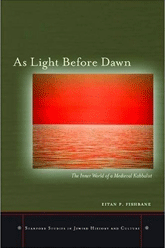
Fishbane, Eitan, As Light Before Dawn: The Inner World of a Medieval Kabbalist (Stanford University Press, 2009)
ISBN-13: 978-0804759137
As Light Before Dawn explores the mystical thought of Isaac ben Samuel of Akko, a major medieval kabbalist whose work has until now received relatively little attention. Through consideration of an extensive literary corpus, including much that still remains in manuscript, this study examines an array of themes and questions that have great applicability to the comparative study of mysticism and the broader study of religion. These include prayer and the nature of mystical experience; meditative concentration directed to God; and the power of mental intention, authority, creativity, and the transmission of wisdom.
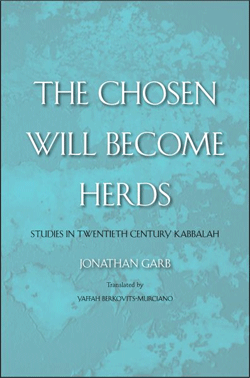
Garb, Jonathan, The Chosen Will Become Herds: Studies in Twentieth-Century Kabbalah (Yale University Press, 2009)
ISBN-13: 978-0300123944
The popularity of Kabbalah, a Jewish mystical movement at least 900 years old, has grown astonishingly within the context of the vast and ever-expanding social movement commonly referred to as the New Age. This book is the first to provide a broad overview of the major trends in contemporary Kabbalah together with in-depth discussions of major figures and schools.
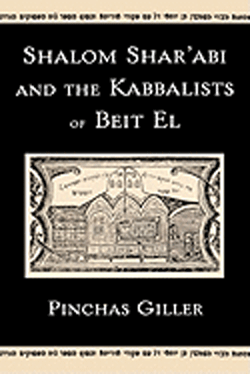
Giller, Pinchas, Shalom Shar'abi and the Kabbalists of Beit El (Oxford University Press, 2008)
ISBN-13: 978-0195328806
The Jerusalem kabbalists of the Beit El Yeshivah are the most influential school of kabbalah in modernity. The school is associated with the writings and personality of a charismatic eighteenth-century Yemenite Rabbi, Shalom Shar'abi, considered by his acolytes to be divinely inspired by the prophet Elijah. Shar'abi initiated what is still the most active school of mysticism in contemporary Middle Eastern Jewry. Today, this meditative tradition is rising in popularity not only in Jerusalem, but throughout the Jewish World.
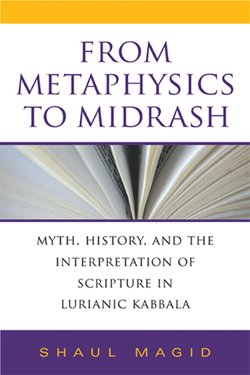
Magid, Shaul From Metaphysics to Midrash: Myth, History, and the Interpretation of Scripture in Lurianic Kabbala (Indiana University Press, 2008)
ISBN-13: 978-0253350886
Shaul Magid has written a bold and intriguing book that should be stimulating to scholars of Jewish literature and intellectual thought. Utilizing five Scriptural narratives -- one from each book of the Chumash -- Magid shows how Lurianic Kabbalists imposed their own particular mystical interpretation on Scripture. Reconstructing the Lurianic Kabbalists' exegesis, he argues that their reading of Scripture linked contemporary sociological issues with metaphysical themes. Their most compelling societal issue was a preoccupation with the question of the conversos who wished to re-enter Judaism and the Jewish community. Their metaphysical preoccupation was the presence of Evil in a world that Torah proclaimed, "And God saw all that He had Made, and behold it was very good." Both these themes concerned a concept of "the Other."
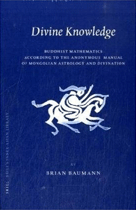
ISBN-13: 978-9004155756
In an original and compelling examination of traditional mathematics, this comprehensive study of the anonymous "Manual of Mongolian Astrology and Divination" (published by A. Mostaert in 1969) takes on the fundamental problem of the post-enlightenment.